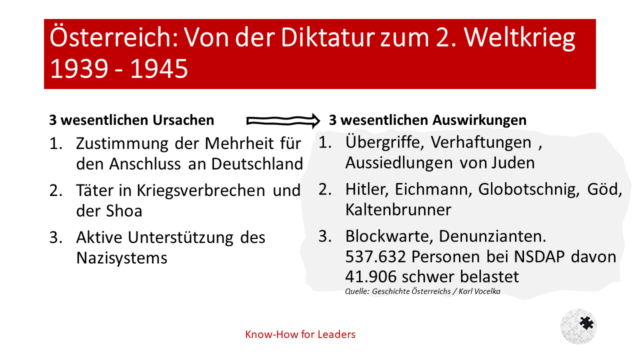Introduction: The Evolution of Fitness
Fitness has come a long way over the years. From ancient civilizations engaging in physical activities to stay fit and healthy, to the rise of gyms and exercise classes in the 20th century, the concept of fitness has evolved significantly. In recent years, there has been a new development in the fitness industry – the integration of personalized artificial intelligence (AI) in fitness programs.
Personalized AI in fitness refers to the use of technology and algorithms to create customized workout and nutrition plans for individuals. This technology takes into account factors such as age, gender, fitness level, and goals to provide tailored recommendations. With the advancements in technology, personalized AI has become more accessible and affordable, making it a popular choice for individuals looking to improve their fitness.
The Rise of Personal Trainers: A Brief History
Personal trainers have played a significant role in the fitness industry for many years. They became popular in the late 20th century as people started to realize the benefits of having a professional guide them through their fitness journey. Personal trainers provide guidance, motivation, and accountability to individuals, helping them achieve their fitness goals.
The benefits of having a personal trainer are numerous. They have the knowledge and expertise to design effective workout programs that are tailored to an individual’s specific needs and goals. They can also provide guidance on proper form and technique, reducing the risk of injury. Additionally, personal trainers can offer motivation and support, pushing individuals to reach their full potential.
The Limitations of Traditional Personal Training
While personal trainers have been instrumental in helping individuals achieve their fitness goals, there are some limitations to traditional personal training. One of the main limitations is the cost. Personal training sessions can be expensive, making it inaccessible for many people. Additionally, personal trainers may not be readily available or located in remote areas, limiting access to their services.
Another limitation is the lack of personalization in traditional personal training. Personal trainers often have a set of general workout plans that they use for their clients, which may not take into account an individual’s specific needs and goals. This lack of personalization can lead to suboptimal results and frustration for individuals who are not seeing the progress they desire.
The Emergence of Personalized AI in Fitness
With the advancements in technology, personalized AI has emerged as a solution to the limitations of traditional personal training. Personalized AI uses algorithms and data analysis to create customized workout and nutrition plans for individuals. This technology takes into account factors such as age, gender, fitness level, and goals to provide tailored recommendations.
Personalized AI is different from traditional personal training in several ways. Firstly, it is more accessible and affordable. With the rise of fitness apps and online platforms, individuals can access personalized AI programs from the comfort of their own homes. Secondly, personalized AI offers a higher level of personalization. The algorithms used in personalized AI take into account individual preferences, progress, and feedback to continuously adapt and improve the workout and nutrition plans.
The benefits of personalized AI in fitness are numerous. Firstly, it provides individuals with customized workout and nutrition plans that are tailored to their specific needs and goals. This level of personalization can lead to more effective results and a higher level of satisfaction. Secondly, personalized AI offers real-time feedback and adjustments. With the use of wearable devices and sensors, individuals can receive instant feedback on their form, intensity, and progress, allowing them to make adjustments as needed. Lastly, personalized AI provides increased motivation and accountability. Many personalized AI programs offer features such as goal tracking, reminders, and virtual coaching, which can help individuals stay motivated and accountable to their fitness goals.
How AI is Revolutionizing Fitness Programs
AI is revolutionizing fitness programs in various ways. One of the main ways is through the use of machine learning algorithms. These algorithms analyze large amounts of data to identify patterns and trends, allowing fitness programs to continuously improve and adapt to individual needs. For example, AI-powered fitness programs can analyze an individual’s workout data to identify areas of improvement and make recommendations for future workouts.
Another way AI is revolutionizing fitness programs is through the use of virtual coaches. Virtual coaches are AI-powered avatars or chatbots that provide guidance, motivation, and support to individuals. These virtual coaches can offer personalized recommendations, answer questions, and provide real-time feedback, making the fitness experience more interactive and engaging.
Examples of AI-powered fitness programs include apps and platforms such as Fitbit, MyFitnessPal, and Nike Training Club. These programs use AI algorithms to track and analyze data such as heart rate, steps taken, calories burned, and sleep patterns to provide personalized recommendations and feedback.
The benefits of using AI in fitness programs are numerous.
Firstly, AI can provide individuals with personalized recommendations that are tailored to their specific needs and goals. This level of personalization can lead to more effective results and a higher level of satisfaction.
Secondly, AI can offer real-time feedback and adjustments. With the use of wearable devices and sensors, individuals can receive instant feedback on their form, intensity, and progress, allowing them to make adjustments as needed.
Lastly, AI can provide increased motivation and accountability. Many AI-powered fitness programs offer features such as goal tracking, reminders, and virtual coaching, which can help individuals stay motivated and accountable to their fitness goals.
The Benefits of Personalized AI in Fitness
Personalized AI in fitness offers several benefits that can enhance the fitness experience. One of the main benefits is the personalization of workouts and nutrition plans. With personalized AI, individuals can receive customized recommendations that take into account their specific needs, goals, and preferences. This level of personalization can lead to more effective results and a higher level of satisfaction.
Another benefit of personalized AI is the real-time feedback and adjustments it provides. With the use of wearable devices and sensors, individuals can receive instant feedback on their form, intensity, and progress. This feedback allows individuals to make adjustments as needed, ensuring they are getting the most out of their workouts.
Personalized AI also offers increased motivation and accountability. Many personalized AI programs offer features such as goal tracking, reminders, and virtual coaching. These features can help individuals stay motivated and accountable to their fitness goals, increasing the likelihood of success.
The Future of Fitness: AI and Human Collaboration
While personalized AI has many benefits, it is important to recognize the role of human trainers in the fitness industry. Human trainers bring a level of expertise, guidance, and personal connection that cannot be replicated by AI
Therefore, the future of fitness lies in the collaboration between AI and human trainers.
AI can assist human trainers by providing data-driven insights and recommendations. For example, AI algorithms can analyze an individual’s workout data to identify areas of improvement and make recommendations for future workouts. Human trainers can then use this information to create customized workout plans and provide guidance and support.
The collaboration between AI and human trainers can enhance the fitness experience in several ways.
Firstly, it can provide individuals with the best of both worlds – the personalization and convenience of AI, combined with the expertise and guidance of human trainers.
Secondly, it can create a more holistic approach to fitness, addressing not only physical aspects but also mental and emotional well-being.
Human trainers can provide the emotional support and motivation that AI may not be able to provide.
The Role of Data in Personalized AI Fitness Programs
Data plays a crucial role in personalized AI fitness programs. Data is collected through various sources such as wearable devices, sensors, and user input. This data is then analyzed using machine learning algorithms to identify patterns and trends, which are used to create personalized recommendations and feedback.
The benefits of using data in personalized AI fitness programs are numerous. Firstly, data allows for a higher level of personalization. By analyzing an individual’s workout data, AI algorithms can identify areas of improvement and make recommendations for future workouts. This level of personalization can lead to more effective results and a higher level of satisfaction.
Secondly, data allows for real-time feedback and adjustments. With the use of wearable devices and sensors, individuals can receive instant feedback on their form, intensity, and progress. This feedback allows individuals to make adjustments as needed, ensuring they are getting the most out of their workouts.
Lastly, data allows for continuous improvement and adaptation. By analyzing large amounts of data, AI algorithms can identify trends and patterns that may not be apparent to human trainers. This information can then be used to improve and adapt the workout and nutrition plans, ensuring they are always up to date and effective.
Challenges and Concerns with AI in Fitness
While personalized AI has many benefits, there are also challenges and concerns that need to be addressed.
One of the main concerns is privacy.
With the collection of personal data through wearable devices and sensors, there is a risk of this data being misused or accessed by unauthorized individuals. It is important for companies to have strict privacy policies in place to protect the personal information of their users.
Another concern is the potential for AI to replace human trainers. While AI can provide personalized recommendations and feedback, it cannot replicate the expertise, guidance, and personal connection that human trainers bring. It is important to recognize the value of human trainers in the fitness industry and ensure that AI is used as a tool to enhance their services, rather than replace them.
Regulation and oversight are also important considerations in the use of AI in fitness. As AI becomes more prevalent in the industry, there is a need for clear guidelines and standards to ensure the ethical and responsible use of this technology. This includes issues such as data privacy, algorithm transparency, and accountability.
Conclusion: The Exciting Future of Fitness with Personalized AI
In conclusion, personalized AI has the potential to revolutionize the fitness industry. With its ability to provide customized workout and nutrition plans, real-time feedback and adjustments, and increased motivation and accountability, personalized AI offers numerous benefits for individuals looking to improve their fitness.
However, it is important to recognize the role of human trainers in the fitness industry and the need for collaboration between AI and human trainers. By combining the personalization and convenience of AI with the expertise and guidance of human trainers, individuals can receive the best possible fitness experience.
The future of fitness with personalized AI is exciting. With advancements in technology and the integration of data analysis and machine learning algorithms, personalized AI has the potential to continuously improve and adapt to individual needs, leading to more effective results and a higher level of satisfaction. However, it is important to address challenges and concerns such as privacy, the potential for AI to replace human trainers, and the need for regulation and oversight. By doing so, we can ensure that personalized AI in fitness is used responsibly and ethically, enhancing the fitness experience for individuals around the world.




